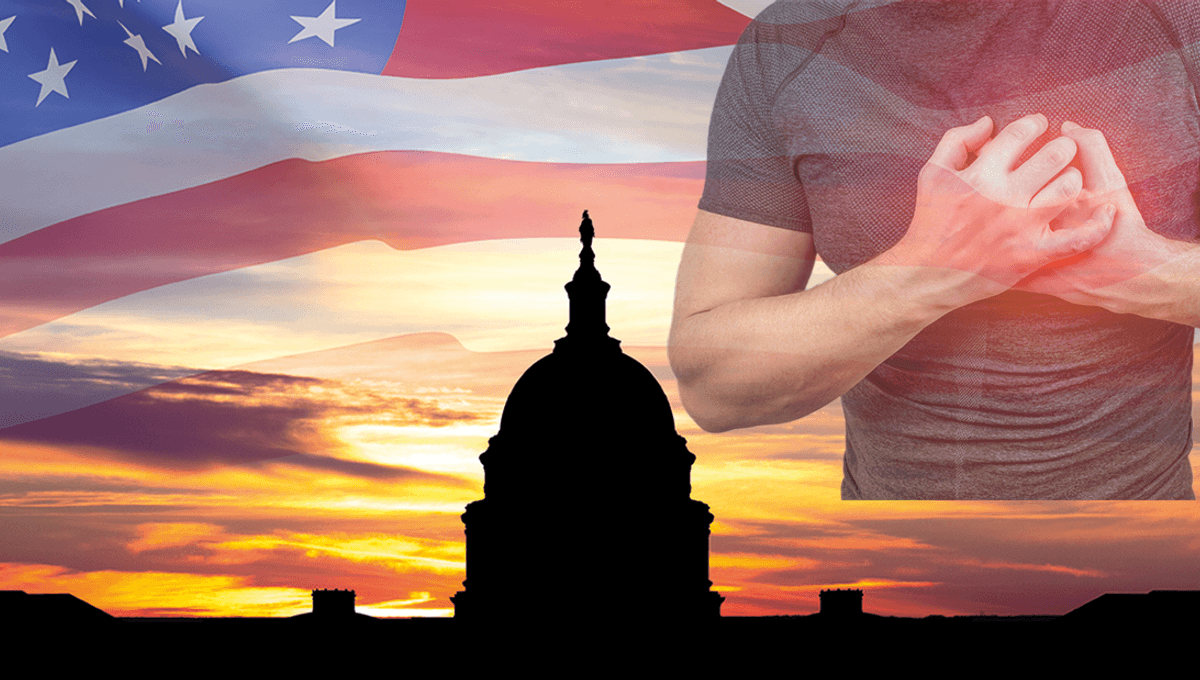
Some people’s specific genetic traits could leave them more vulnerable to heart attack during times of stress, like national holidays or elections. Recent research is showing how an inherited vulnerability could be behind a trend that’s long been observed but has remained poorly understood.
“We found people who are genetically predisposed to stress tend to have a strikingly higher probability of developing a heart attack after these stressful events,” explained lead author Dr Shady Abohashem in a statement.
Many doctors have noticed a spike in heart attacks during major holidays like Christmas, around the time of big sporting events like the Super Bowl, and in the wake of elections. This study is the first to look for any genetic underpinnings that might explain this trend, and the scientists struck gold when they identified a group of people with higher susceptibility to stress.
“We now understand that there are certain factors driving this increase in heart attacks in those who are at increased risk,” said Abohashem.
Data from almost 18,500 individuals who provided information and blood samples for inclusion in the Mass General Brigham Biobank were analyzed. Among the health metrics collected for each person was a score called the neuroticism polygenic risk score (nPRS), a well-established measure of someone’s genetic predisposition to stress.
During the 20-year study period, between 2000 and 2020, 1,890 participants experienced acute coronary syndrome (ACS), which encompasses heart attacks and other conditions that suddenly cut off blood supply to part of the heart muscle.
People whose nPRS was above the median were found to be 34 percent more likely to experience ACS during stressful times, even when other factors like smoking status, alcohol consumption, and diabetes were taken into account.
High-nPRS individuals were also more prone to anxiety and depression, and this too compounded their risk of ACS, with those experiencing these psychological symptoms being 3.2 times more likely to have a cardiac event during a stressful period.
The “high stress” periods included for the purpose of this research were the immediate aftermath of presidential elections and sporting events involving local teams (including the Super Bowl and NBA playoffs), as well as the 10 days following Christmas. These times were compared with other days of the year as a control.
Now that we’ve identified a population that could be at heightened risk of a cardiac emergency at certain times, Abohashem hopes we might be able to intervene to help mitigate this risk: “We could potentially target those people with screenings and dual-benefit interventions, such as exercise, yoga, mindfulness or other approaches that are associated with reductions in anxiety and depression and also with lowering cardiovascular risk.”
The researchers note that a limitation of this study is its retrospective nature – that means we can’t definitively say that there is a causal link between depression/anxiety in people predisposed to stress and ACS risk. In the future, prospective studies could help scientists gain a clearer understanding of this relationship.
Abohashem also highlighted the gaps in mental healthcare that exist in the US, with some patients facing barriers to accessing the support they need. Technological solutions are helping with this to some degree, such as more telehealth appointments, but there may be more that primary care providers can do to steer people towards self-help strategies like exercise and better sleep hygiene.
To be fair, the news cycle in the run-up to an election is enough to keep anyone awake at night. Might we suggest catching up on the latest and greatest science news instead?
The study was presented at the American College of Cardiology’s Annual Scientific Session.
[H/T: The Hill]
Source Link: Your Genes Could Increase Your Heart Attack Risk At Election Time